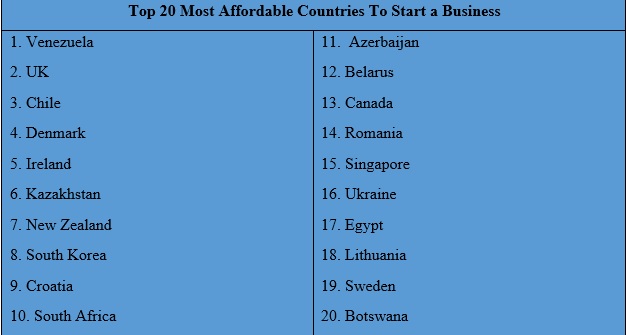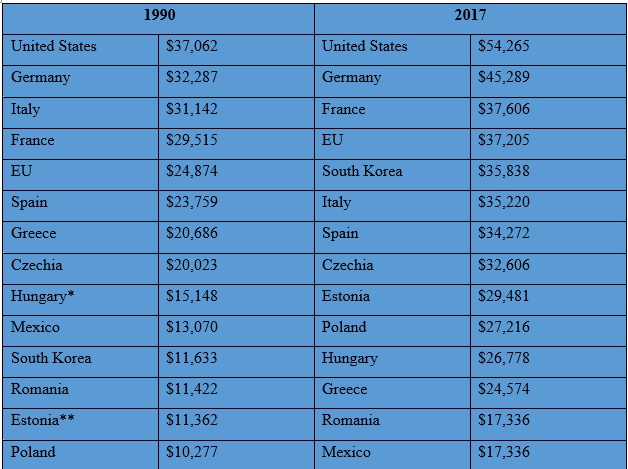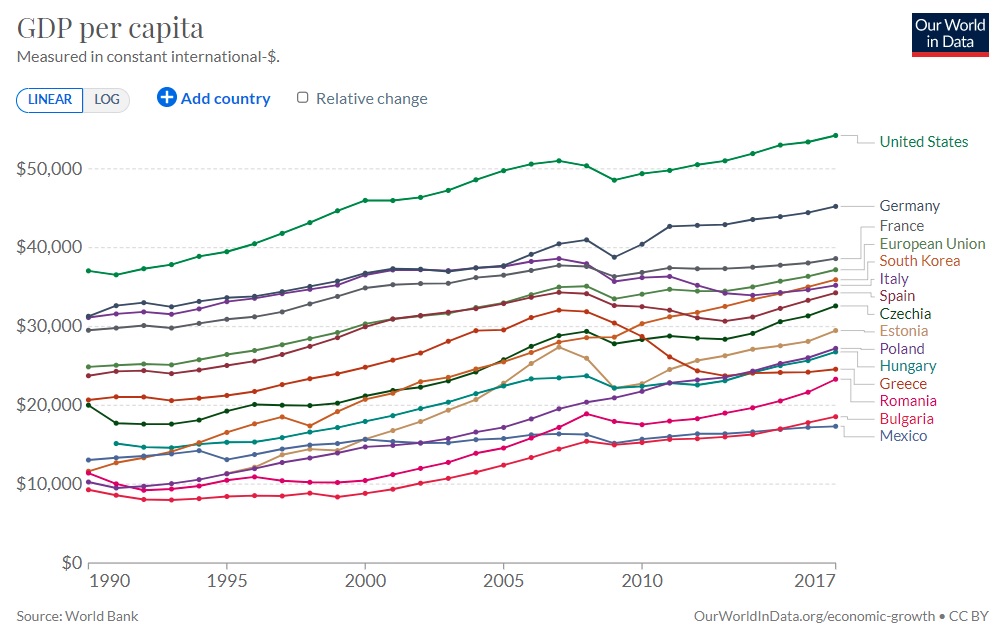We took last week off partly because we were on our first work trip in a year and a half, participating on a supply chain panel at a conference out of town. While there, we rented an electric scooter to transport us to a burger/milkshake place about 3 miles from our hotel that had been recommended to us. They closed at 8 p.m. These scooters, although fun and convenient, appear to be one of the three most dangerous modes of transportation on planet earth. Too fast for the sidewalk, too slow for the street and no protection of any kind in an accident. We’d gone about a mile on the scooter when the battery died. Fortunately there was another one nearby and we rode that switching from sidewalk to street when the former became like a lunar landscape (cities spend money on every possible issue except maintaining sidewalks and then wonder why no one walks). We arrived at the burger/milkshake place at 7:10 pm where we were informed by the cook that their website was wrong and they close at 7 pm not 8 pm.
Despite risking life and limb to get there, we were good-natured about it, turned our scooter around and scooted down a steep hill towards a taco place. Our scooter reached 30 mph when we heard a loud siren behind us. We were on a blind curve but there was no way to get onto the bumpy sidewalks so we edged to the side of the road as a huge fire truck went blazing by us like a house on fire and none too pleased by our presence on the street. Shortly thereafter a group of young men heckled us from the crooked sidewalks urging us to pop a wheelie. It should be noted that we were dressed in a sports jacket, button down shirt and slacks—there was definitely an aura of Jehovah Witness/Mormon missionary about us–which may be why we were heckled yet again as we neared the taco place. But neither fire truck, degrading sidewalks or hecklers kept us from the taco combination plate. And we don’t keep you from the most affordable place to start a business, what’s happened to Europe the last 30 years and that China is smaller than you think. It’s this week’s International Need to Know, the lovable international data mutt of the dog days of August.
Without further ado, here’s what you need to know.
Most Affordable Place to Start a Business
The Covid-19 pandemic has produced many mysteries worthy of an HBO prestige drama, one of which is why so many businesses were started in the United States during such a great time of uncertainty. But where in our world is the most affordable place to start a business? A business financing website in the UK decided to calculate this using the World Bank’s Doing Business data. They looked at how much it costs to start a business in a country relative to monthly income in the country. Using that calculation, the most affordable place to start a business in our little world is the U.K. followed by Borat’s Kazakhstan, Chile, New Zealand and South Korea (see the full top 20 below). In North America it’s more affordable to start a business in Canada than the United States. And yet more successful businesses have been started in the U.S. than Canada so perhaps affordability is not the end all and be all. In fact, the cheapest place to start a business is Venezuela, where we’re guessing, you probably don’t want to start a business.
Europe’s Last Thirty Years
We traveled in Eastern Europe just before the wall came down. With some in the American right-wing suddenly fond of the quasi authoritarian regime of Hungary, we thought it was a good time to examine the economies of those behind the Iron Curtain compared with Western Europe. As you can see in the Our World in Data graph below, in 1990, Hungary, Romania and Poland’s GDP per capita were about half of the EU average with the Czech Republic about two-thirds of the EU’s. Flash forward to today and those three countries are now about two-thirds of the EU average and Czechia has almost caught up. Estonia has passed the other countries and is just behind Czechia. Remarkably and worryingly is the lack of economic growth by Greece, Italy and Spain. In 1990, Italy’s GDP per capita was the same as Germany’s but now is far behind Germany and just barely ahead of the Czech Republic. Of course, if we look at non-European countries, notice how South Korea has out-performed all of these countries (see second chart below). Its export-driven, investment-oriented economic development puts the former Iron Curtain countries to shame. This leads us to ask whether the EU has been helpful to its member’s economies? Has its structure and Germany’s control of monetary policy harmed and depressed these countries ability to grow or is the problem those countries governing structures themselves?
*Hungary data starts in 1991
**Estonia data starts in 1995
China Corner: China Not As Big As You Think
If you read Challenging China closely or heard one of our presentations, you’ll notice we state that China has 1.3 billion people not 1.4 billion. That’s because a number of years ago we read a convincing argument that China misrepresents its population, just as it does its economic growth. Now comes a new article buttressing our stance. Yi Fuxian of the University of Wisconsin Madison writes in Project Syndicate that China’s population is probably just under 1.3 billion people. He notes that localities often report more students than they actually have in order to receive more education subsidies but if you look at registration numbers for the hukou system—all Chinese are required to register where they are a legal resident—the numbers are much lower. “So, from 2004 to 2009, China supposedly had 104 million first-graders. This was consistent with the 105 million births China’s National Bureau of Statistics announced in 1998-2003. Yet there were only 84 million people aged 7-12 registered in the (mandatory) hukou system in 2010, and only 86 million ninth-graders registered in 2012-17.” If Yi is correct, than China is already less populous than India and its aging demographic challenge is much greater than people realize. China is a challenge to the world—we wrote a whole book about how so and what to do about it—but it is also not as powerful or as big as some people think and our policies to deal with China need to reflect that.




